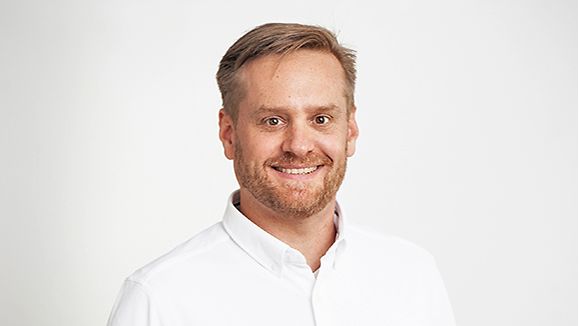medical technology market volume in Germany in 2023 (in EUR)
Your company is already operating in Germany and you would now like to export worldwide?
Key Facts
Facts & Figures
Europe’s Largest Market
With market share of almost 27 percent and sales of around EUR 43 billion in 2023, Germany represents by far the biggest European medical technology market – followed by France, the United Kingdom, Italy, and Spain respectively. Approximately EUR 38.6 billion of turnover in Germany was generated in the medical device segment and around EUR 4.3 billion in the IVD segment. This corresponds to 26.5 percent and 30.3 percent of the respective European markets.
Europe’s Leading Innovation Location
Germany is Europe’s leading medtech innovation location based on patent application levels. In 2023, some 1,380 patents were registered with the European Patent Office by the German medical technology industry. This is equivalent to spending of more than EUR 3 billion per year on R&D and the patenting of novel technologies.
Major Medtech Manufacturer
In 2023, Germany’s 13,500 medtech manufacturers and their more than 265,000 employees generated revenues of EUR 55 billion. Out of those, the 1,480 companies with more than 20 employees accounted for more than EUR 40 billion of those revenues.
Medtech “Made in Germany” Highly Valued
More than two thirds of the turnover of German medtech companies with more than 20 employees is generated in international markets (EUR 27.4 billion in 2023). Although the USA remains the single biggest market, followed by China, the lion's share of German medical device exports actually stays within Europe.
Opportunities
Opportunities in Germany’s Medical Technology Industry
Medical Aids Segment
The medical aids sector encompasses a wide range of different product groups in the area of assistive devices and mobility equipment – from prostheses, orthoses, walking aids and wheelchairs through to incontinence treatments and visual and hearing aids.
Medical aid spending reached EUR 23.2 billion in 2023 – equivalent to a 7.4 percent year-on-year increase. The number of care recipients in Germany increased from 3.9 million in 2018 to 5.6 million in 2023 and may exceed 6 million by 2030, thereby further stimulating demand for medical aids in the future.
Digital Health Segment
Germany's Digital Care Act (DVG) paved the way to broad usage and reimbursement of digital health applications (“DiGAs”) providing access to digital health apps on prescription to 74 million insured Germans. The number of “DiGAs” reimbursed in Germany grew to 56 in 2023 and revenues demonstrate a continuous upwards trend, already exceeding EUR 75 million during the same year. This corresponds to more than 374,000 recorded cases. Regarding leading indication areas, around one third of prescriptions target psychological disorders, followed by apps directed at metabolic diseases, musculoskeletal disorders and diseases of the ear. Visit our digital health section for more about developments in this dynamic growth segment.
IVD Segment
The German IVD market is the fourth largest worldwide after the USA, China and Japan. It accounts for almost one third of the European market (around 30.3 percent in 2023). According to market forecasts, the German IVD market shows positive future prospects and is expected to grow by around 3.2 percent between 2024 and 2029.
Germany's aging society and the increasing prevalence of chronic diseases stimulate demand for IVD products. The increasing personalization enables better targeted therapies. The growing digitization and automation of diagnostic tests also represent another major trend in the sector and increase the efficiency of such solutions, e.g. through the implementation of novel technologies such as artificial intelligence and robotics.
Business Environment
Products "Made in Germany“ enjoy an excellent global reputation for their outstanding quality, innovation and design. The basis of this success is long-established collaboration between different industry players that can also benefit international companies.
Attractive Innovation Location
Germany’s medical technology industry is highly innovative and drives medical progress – around nine percent of revenue is invested in R&D. More than EUR 3 billion is spent each year on R&D and the patenting of novel technologies. Germany is Europe’s leading medtech country based on the number of patent applications. In 2023, some 1,380 patents were registered with the European Patent Office by the German medical technology industry.
Medical Technology Clusters
Germany is home to around 50 medtech cluster networks. Their goal is to achieve continuous innovation in R&D and in manufacturing by connecting companies, hospitals, universities, and other research institutions. Dedicated cluster management helps obtain funding for joint R&D projects, provide shared facilities and organize educational training programs for their members. This favorable and dynamic environment allows international companies to succeed in the German market.
Europe’s Biggest Hospital Sector
The country's globally renowned university hospitals play an important role in the development and introduction of new medical products and services – whether as R&D partners or in the implementation of clinical trials. Germany has the biggest hospital sector in Europe with almost 1,900 hospitals - including 36 university hospitals and a total capacity of around 500,000 beds.
Attractive Manufacturing Location
Germany is an attractive manufacturing location thanks to high productivity and advanced manufacturing leadership. The country enjoys a long and successful tradition in mechanical medical engineering and high-quality manufacturing.
Germany’s Mittelstand of SMEs
Small and medium-sized enterprises form the backbone of the German medtech industry and drive innovation. Around 93 percent of medtech companies have less than 250 employees and belong to the German “Mittelstand” of SMEs.
World-class Education and Training
Medical technology companies can rely on Germany's world-class education system - ensuring that the highest standards are always met - and ready access to a competitive, highly skilled and motivated workforce in the EU's largest pool of skilled labor. With its state-of-the-art infrastructure and its central location in Europe, Germany is also an ideal location for serving other European markets.
